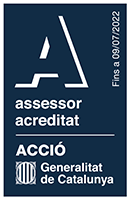International economic institutions, agencies, and agreements are crucial players in global economics. They play a vital role in coordinating the efforts of countries worldwide to promote economic growth and development. These institutions, agencies, and agreements provide the necessary framework for economic policies and regulations that guide international trade, investment, and finance.
International economic institutions are organizations created to facilitate international trade and investment. These institutions provide a platform for countries to work together in establishing economic policies and regulations. The World Trade Organization (WTO) is one such institution that oversees global trade policies. It provides a forum for member countries to negotiate and resolve trade disputes. The International Monetary Fund (IMF) is another such institution that facilitates international monetary cooperation and exchange rate stability. It also provides financial assistance to member countries facing economic difficulties.
Agencies are bodies created to carry out specific responsibilities that support the work of international economic institutions. One such agency is the International Finance Corporation (IFC), which is part of the World Bank Group. The IFC provides long-term finance to private sector projects in developing countries. It also provides advisory services to help these countries improve their investment climates. Another agency is the United Nations Conference on Trade and Development (UNCTAD), which promotes the integrated development of developing countries through trade and investment.
Agreements are legally binding documents that establish rules and regulations for international economic activities. These agreements facilitate the movement of goods, services, and capital across borders. One such agreement is the North American Free Trade Agreement (NAFTA), which established a free trade area between Canada, Mexico, and the United States. Another agreement is the General Agreement on Tariffs and Trade (GATT), which was replaced by the WTO. This agreement aimed to reduce trade barriers and promote international trade.
International economic institutions, agencies, and agreements face challenges in promoting economic growth and development worldwide. These challenges include trade conflicts, protectionism, and financial instability. Institutions and agencies must work together to overcome these challenges while promoting economic stability and growth.
In conclusion, international economic institutions, agencies, and agreements play a significant role in global economic growth and development. They provide the necessary framework for economic policies and regulations that guide international trade, investment, and finance. These institutions, agencies, and agreements facilitate the movement of goods, services, and capital across borders, creating opportunities for economic development worldwide. Therefore, it is essential to maintain and strengthen these institutions, agencies, and agreements to promote economic growth and development.








